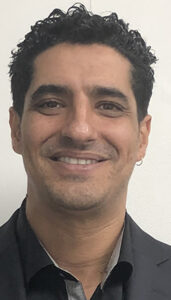By Shahar Masori

SAN DIEGO — Education is a cornerstone of any society, shaping not just individual futures but also the cultural and economic potential of a nation. As someone who has experienced education systems in the U.S. and in Israel, I’ve seen how these two countries approach education in ways that reflect their unique histories, cultures, and values.
I remember a moment from my middle school years during religious studies. I was arguing with my teacher about the nature of prayer, specifically what defines a prayer. I argued that prayer is about intent, not necessarily the words used. Fortunately, that particular teacher, although extremely observant of the Jewish faith, allowed me to express myself fully and engaged in a fascinating discussion with me and the rest of the class. He strongly disagreed with me, by the way.
In Israel, education feels like a communal endeavor. The school day starts early and often includes a mix of core subjects like math and science, along with classes in Jewish history and Hebrew literature, and, in high school, military preparation as well. From a young age, there is an emphasis on critical thinking and debate, perhaps reflecting Israel’s diverse society and its focus on security and civic responsibility. The famous Israeli chutzpah starts in the classroom, where students are encouraged to question, challenge, and engage in lively discussions with their teachers.
One of the most distinctive aspects of the Israeli education system is the high school matriculation exams, or Bagrut. These exams are a series of standardized tests that students must pass to graduate and gain university admission. The Bagrut covers a wide range of subjects, and students often start preparing for them years in advance. Unlike the SAT or ACT in the U.S., the Bagrut exams are more comprehensive and can include oral exams and practical assessments. The pressure to perform well on these exams is intense, but they are seen as a rite of passage for young Israelis.
In contrast, my experience with the U.S. education system feels more like a personal journey. I remember when my son entered high school and tried to explain the concept of elective classes to me. I didn’t realize that there was a choice in the classes you could take—outside of college, I thought that all classes were pre-set and predetermined by the school, and that all students took the same classes. It was then that I learned American schools emphasize a broad education, with students taking a variety of classes. There’s more flexibility in choosing subjects, allowing students to explore interests and talents in areas like the arts, sports, or vocational training. Standardized testing still plays a significant role, but with the SAT or ACT, there’s a sense of trying to “beat the test” rather than engaging deeply with the material.
Higher education in the U.S. is another beast entirely. The variety of colleges and universities, from community colleges to Ivy League institutions, means that students have a lot of choices, but also a lot of pressure to figure out what they want to do at a young age. The application process can be daunting, with its combination of GPA, test scores, extracurriculars, and personal essays. In Israel, while university entrance is competitive, the path is more straightforward—perform well on your Bagrut and the Psychometric Entrance Test, and you’re in—after your military service, of course.
Both systems have their strengths and weaknesses. The Israeli education system fosters a sense of community, responsibility, and resilience, while the U.S. system emphasizes individuality, creativity, and personal growth. However, both are grappling with challenges like educational inequality, the impact of technology, and how to best prepare students for an uncertain future.
I can see the value in both approaches, and in some ways, I hope to see a combination of both in the near future. The Israeli emphasis on critical thinking and communal responsibility instilled in me a sense of purpose and connection, while the American focus on flexibility and personal achievement taught me to be adaptable and self-motivated. In the end, education is about more than just grades or diplomas; it’s about learning to see the world from different perspectives, to understand our place in it, and to find our path forward.
*
Shahar Masori was raised in Hadera, Israel, and immigrated to San Diego in 2000, where he helped build a balloon decor business and raised two sons.